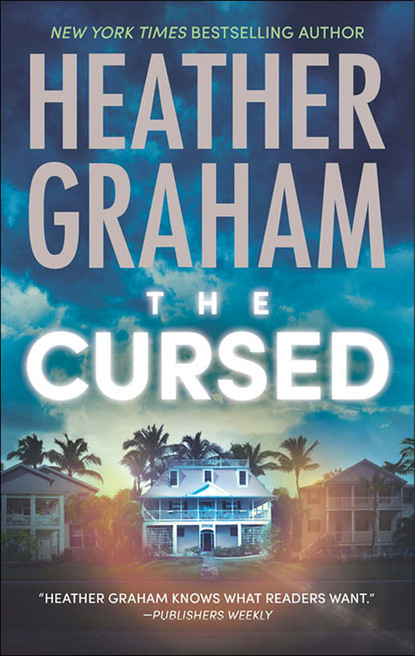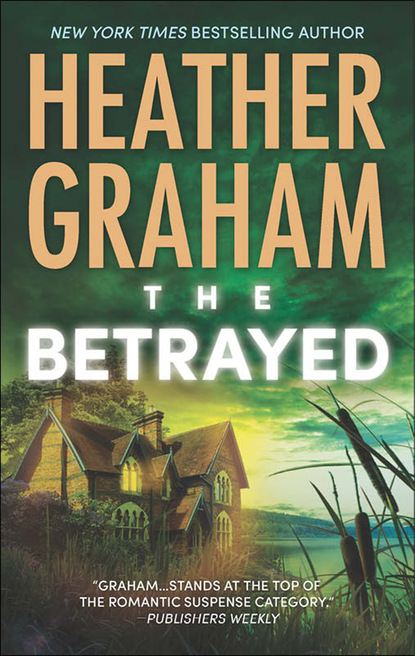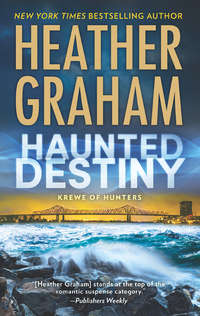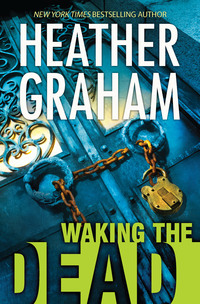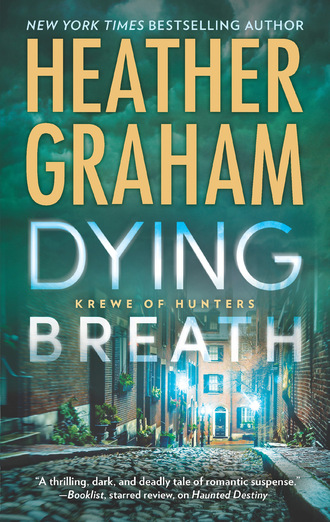
Полная версия
Dying Breath
She made herself breathe—and breathe again.
“Okay, I just didn’t see it before,” she murmured to herself. “Right there—right on the footstool, but somehow, I’ve gone blind. What do you think, Noah? I didn’t set the phone down upstairs, I did that down here. And I just didn’t really look for the remote control. I’m too into you!”
He was such a delightful baby. He looked at her and clapped his hands together. She forced a smile and looked at her watch.
Six o’clock. Full dark on a wintry Boston night. Mr. and Mrs. Ballantine wouldn’t come home for hours.
And now, because she’d seen too many horror movies, she was allowing herself to let her imagination run wild.
George and Chrissy Ballantine had been there when she arrived. There was no one else in the house.
“Breathe, kid, breathe,” she told herself. “Ah! Well, it’s here.” She grabbed the remote control as if it were a lifeline. “Why didn’t your parents get one of those remotes that just lets you talk to the TV and turn it on, huh? You know, like, ‘TV! Go on. Bring me to a really cute little kids’ show!’”
Noah clapped and made a few oohing noises.
Vickie turned on the television. From the corner of her eye, she felt as if someone passed by her. She spun around, looking everywhere; there was no one there.
“Crazy. Your Bick-bick is going crazy, Noah!” she said.
She didn’t know why, but she found herself looking at the family portraits that flanked the massive granite mantle.
Mr. and Mrs. Ballantine to the right.
Dylan and Noah to the left.
She swallowed hard and turned her attention to the flat-screen television.
It was tuned to a news channel. A reporter stood before a huge building in Suffolk County, warning listeners that two prisoners had escaped that morning from the South Bay House of Correction.
They had feigned illness in a planned escape; they had taken the guns used in their escape from guards they had left critically wounded.
One, Reginald Mason, had already been captured after a shootout with police at a convenience store. Two civilians had been wounded in the gunfire.
Residents of the Greater Boston area were warned to be extremely careful. Mug shots of the men were shown, with the footage then zooming in on the face of one Bertram Aldridge. Six years ago, he’d terrorized the area, becoming known as the Southside Slasher for the horrible way he’d murdered his seven known victims. He’d liked to tease law enforcement with letters to the newspapers, telling them FBI stood for Fat-Butt Intelligence and BPD stood for Billie-Prick-Dicks.
Police were out in force, and they expected to find the second man quickly, since he was local and had ties to the area. Past associates of the man were under investigation.
She realized she and the baby were staring at the screen as the reporter continued to numerate the violent crimes committed by the men. Bertram Aldridge, still on the loose, was known for butchering his victims with a knife, but he was familiar with firearms and had shot several officers during his original arrest.
“No, no!” she said aloud, and she began to flick the button to change the channel.
There were tons of news channels. Every one of them seemed to be covering the escape.
At last, she found a Disney cartoon, one that she loved herself—The Little Mermaid.
Singing crustaceans—yep. They were good for now.
Then the air in the room seemed changed, and again she felt as though someone else was there. Right there with her in the room.
The baby was clapping and laughing.
That was good, of course. Because, inwardly, she was freaking out.
The door was locked; she’d checked.
But it hadn’t been before. She’d heard a bump. And her phone...
She could remember—at least she thought she could remember—putting it down upstairs.
“It’s because I’m scared silly, little one—freaking here. I’m about to call my mommy!” she said to Noah, trying to smile all the time.
He laughed at her.
And then turned and laughed and clapped again, seemingly seeing someone else there.
“Okay, I’ve had it!” she said. “Kid, we’re going to head into the kitchen. Nice and cozy there, and we have a door—”
Her words broke off. She heard something. For sure this time. From upstairs.
Then suddenly she screamed. There was something right in front of her. What—she didn’t know. At first, it just seemed like clouds forming in air. Then there seemed to be a face, and then a form, and a full figure. Her mouth opened; she felt like fire and ice in one. Terror ripped through her with a painful vengeance.
And she heard the sound again. Something up the stairs. As if someone was moving, as if they were close to the stairs, perhaps to come down them...
And in front of her...
The figure and face had formed. Her gaze jerked up to the pictures above the mantle. She looked at the portrait of Dylan Ballantine.
And she looked at the strange thing that had formed out of the air before her.
“Go!” she heard. It was a rustle; it might have been leaves.
It might have been the terror that ruled her brain.
And it might have been the ghostly image of Dylan Ballantine standing before her now.
And still, she heard that sound...someone moving furtively, taking a step on the staircase, moving in a way she could sense...
And then...
She felt as if she was suddenly slapped hard by an icy hand.
“Get Noah and get out!”
Like a whisper, like a whisper, like a sound that played only in her mind...
“Move! Move—now!”
At that point, she acted. She grabbed the baby. She forgot about his ultrawarm knit hat and his mittens and his outside shoes.
She held him to her chest, raced to the front door, threw it open and raced out into the street.
It was dark and it was cold and no tourists were traveling the Freedom Trail. She heard a pounding behind her.
She was terrified to look back.
She did.
A man was there, behind her, coming after her. A man with a gun.
She turned and ran again—toward the Paul Revere House.
There were still people there! A group milling, talking about where to go to dinner.
“Help, help!” she cried.
Someone heard her! A tall Boston policeman had suddenly appeared on the sidewalk.
“Down, miss, down!” he shouted.
She gripped Noah even more tightly to her and ducked low.
She heard an explosion and a scream at the same time. Turning back, she saw the man with the gun on the ground.
He had fired, but he had apparently tripped over his own two feet. His gun had gone off... But his bullet had aimed into the sky. He was struggling up, taking aim again...
But he’d been shot.
The young policeman had fired at almost the same time.
Standing next to the collapsed man was the image of the boy she had seen in the house. Dylan Ballantine, dead nearly three years, dead before his baby brother had been born.
The policeman rushed by Vickie and the baby, his own weapon aimed at the man—the convict!—who had evidently tripped...
The man on the ground screamed as the cop’s bullet exploded again; his gun went flying from his hand. He was disarmed, bleeding.
But only because he had tripped over the leg of a dead boy! Over Dylan Ballantine.
And as she continued to stare back in terror, the image of Dylan Ballantine began to fade.
And then he was gone.
The icy darkness of the wintry night began to settle in, and Noah began to cry at last.
1
Boston, Massachusetts
The North End
Summer
Griffin Pryce ran hard and as fast as he could, ahead of Jackson Crow by maybe ten feet. Not that it mattered. The clue had led them to the historic old cemetery, but once there, they’d have to look.
Thankfully it was summer. There was no abundance of multicolored autumn leaves to cover the ground; they would hopefully find an area that had been disturbed easily enough.
This was the first time the kidnapper/killer known as the Undertaker had actually left his victim in a cemetery. At least, so Griffin believed.
He was known to box his victims, nail them into wooden coffin-like crates.
Now, the box might well be a coffin.
There—behind dozens of slate stone markers, few really over the bodies they memorialized anymore and even fewer that had been rechiseled so that the words honoring the dead were legible—he saw where the ground had been ripped up.
He raced to the area—then swore when he hit a soft spot in the ground and went down—straight down—a good four feet.
“Here!” he shouted, though, of course, shouting was rather inane since Jackson surely recognized that Griffin had fallen into some kind of a pit.
Not so strange, he knew. In 2009, a woman had fallen into the stairway of a long forgotten tomb at the Granary cemetery. Time had a way with slate seals and old granite and the earth. Thousands had been buried here throughout time; all kinds of vaults lay beneath the surface.
He just prayed that they had found the right place, right now; that they were in time.
He heard Jackson coming up behind him as he frantically worked to dislodge more dirt from underneath himself. He doubted that the kidnapper would have had enough time to dig too deeply.
Thank God, he hadn’t. He found the poor wooden coffin in which the victim had been buried alive. As he worked to remove heavy clods of dirt and bracken, Jackson was already on the phone calling for backup and an ambulance.
Backup wasn’t far behind them. But before others arrived, Jackson joined him in the hole. They pried open the coffin lid.
And found Barbara Marshall.
She was pale beyond death; her lips were blue.
For a split second, Griffin and Jackson stared at one another. Then Jackson braced the coffin as Griffin pulled the woman from it, crawled from the hole with her in his arms, eased her gently to the ground and began resuscitation. He counted, he prayed, applied pressure and tried to breathe life into the woman.
Even in the midst of his efforts, a med tech arrived; Griffin gave way to the trained man who moved in to take his place.
“We may have been too late!” he said, the words a whisper, yet fierce even in their quiet tone.
“Maybe not,” Jackson said.
The emergency crew worked quickly. Griffin stood there, almost numb, as Barbara Marshall was moved, as a gurney was brought, as lifesaving techniques went into play with a rush of medical equipment.
Then she was whisked away, and he and Jackson were left gasping for breath as their counterpart from the police department arrived, while uniformed officers held back the suddenly growing crowd—and the press.
At last, with enough breath, Griffin looked at Jackson. “Think she’ll make it?”
“She may.”
“Think he’s watching?” Griffin asked.
“Hard to tell. Whoever is doing this is also leading the semblance of a normal life,” Jackson said.
“So he—or they—could be at work, picking kids up from school, or so on,” Griffin murmured.
“But I think that, yes, watching will be part of the pleasure, whenever they can watch,” Jackson said.
Griffin stood, fighting anger and disgust, and looked around at the buildings that surrounded them.
Boston was, to him, one of the most amazing cities in America. Modern finance and massive skyscrapers dominated the downtown area—along with precious gems of history. Boston Common, King’s Chapel, Faneuil Hall, the Paul Revere House, the Old North Church and more were within easy walking distance. Centuries of history within blocks. Colonial architecture, Gothic churches, Victorian; Boston was a visual display of American eras.
But the multitude of what was newer and contemporary in building might well afford the kidnapper a fine vantage point for watching as the police and FBI agents ran around like ants on the ground following the clues he so relished sending to the media.
This time, the clue had been, “James II, sadly not long for the throne. Still, a thief. Ah, Old Boston!”
A crew had been sent to King’s Chapel, as well. But Griffin had been convinced that their kidnapping victim would be found in the cemetery. This Undertaker liked drama.
And history and dirt, so it seemed.
Barbara Marshall was his fourth victim. Griffin prayed she survived.
The first victim, Beverly Tatum of Revere, had not.
But then, no one had heard of the Undertaker when she’d been taken.
When they had so desperately searched.
And searched.
Beverly Tatum had been found by police two weeks later, locked in an old freezer in a dump.
Jennifer Hudgins of Lynn had also died. The family had notified the police, who’d suspected her husband was responsible for her disappearance. They’d tailed him, questioned his coworkers...and then they’d run out of leads. The husband’s alibi had been proven true.
Jennifer had eventually been found inside a locker at an abandoned school in Brookline.
Then, Angelina Gianni of Boston had been taken.
The FBI had been called in for help—the Krewe, specifically, because Angelina’s husband, Anthony, had been certain that his wife’s mother had been speaking to him from the grave, telling him that he must dig to find her.
By then, the major television and internet news agency that had received the first two clues—and had originally considered them to be nothing but odd statements from a kook—had determined that they might be from the real criminal.
The clues had been received in plain white envelopes—mailed from Boston’s largest post office, no matter what other towns, cities or suburbs had been involved. No fingerprints of course. They contained a simple line or two lines giving a clue as to the whereabouts of the victims. The first clue had been “Where the old is discarded, where one may find what was once cold.” The second clue had read “No longer may one learn; is all learning but kept locked away?”
They’d found the third victim, Angelina, before it was too late. Griffin could be grateful that his knowledge of his Massachusetts home had helped. The clue had read “Fire away, and so it begins!”
He’d focused on Lexington and an old house that had served as a bed-and-breakfast near the first famous battle site. Of course, even then, he might not have found her if it hadn’t been for a dream. Or rather, the ghost who had entered his dream. The ghost of the missing woman’s mother. Eva, her name had been. Even in his dream, she’d switched to Italian now and then.
Though Griffin had known since he’d been a child that the dead could sometimes speak, it was sometimes difficult to admit. Even now—even belonging to the Krewe of Hunters. Even working with Jackson Crow, who seemed to think their strange and very often useful “gifts” were nothing unusual.
And so Angelina had lived. Her family had been grateful and they would have done anything to help the police. But Angelina had no memory of what had happened to her.
All she remembered was the darkness of being locked away.
This time, no ghost had come to him. The kidnapper or kidnappers—while the press had decreed one man and dubbed him the Undertaker, Griffin couldn’t rule out there wasn’t more than one person involved—had come straight to Boston. Having grown up on Beacon Hill, and walked these streets on his beat as a Boston cop before joining the FBI, Griffin had been certain about the message.
He was grateful that he and Jackson and the Krewe, as representatives of the FBI, had helped. He was incredibly grateful that one victim had lived; maybe Barbara Marshall would make it as well.
But they were no closer to the kidnapper—or kidnappers, as he suspected. Jackson knew that Griffin believed it had to be more than one person executing the crimes, but since the press had gone with “Undertaker,” they referred to the kidnapper themselves.
A shout suddenly went up from the street and echoed back to them. An officer in uniform came running back to them as they heard the sirens from the ambulance moving away through the city.
“She breathed on her own!” the officer said, his face alight. “They think she’s going to make it.”
Griffin looked over at Jackson and nodded his appreciation. Then he looked up at the buildings again, certain they were, indeed, being watched. Jackson leaped up and offered Griffin a hand; Griffin realized he was still somewhat in a hole. Accepting Jackson’s hand, he stepped out.
“We’ll find him,” Jackson said quietly. He had a right to be confident. The Krewe solved their cases. Griffin knew that; he was extremely grateful to be a part of the unique and special unit.
“Sure,” he said. He knew their minds were on similar tracks.
They would find the sick criminal doing this. But would they find him, and stop him, before someone else died?
As he joined Jackson, walking toward the street entrance of the cemetery, he saw Detective David Barnes, Boston Police, on his phone, looking ashen and tense.
Griffin had only just met Barnes on this case. The man had been with the BPD over fifteen years, but when Griffin had been a cop, Barnes had been Southie, working patrol out of South Boston. The man had studied him intently when they had first met—he’d obviously heard Griffin had once been with the BPD, and that he’d been the patrolman to bring down escaped convict Bertram Aldridge. The dramatic takedown had been all over the news at the time, and had made Griffin’s reputation.
Barnes seemed to be a decent man and a good detective; he’d welcomed their assistance and had been glad to have them on the team. Griffin figured he was about forty-five—with the wear and tear of someone a few years older.
“Victory—and yet short-lived,” Barnes said, deep furrows lining his brow. “We’ve gotten a call from a nearby resident, George Ballantine. His wife didn’t show up after their son’s Little League practice—then he found out she never even made it to her garden club meeting earlier in the day.” He stared at Griffin, nodding, and added, “Yeah. Ballantine.”
Something inside clicked hard against Griffin’s chest.
Ballantine.
He could remember too clearly when the killer, Bertram Aldridge, had made an attempt on the life of the Ballantine’s toddler son and their young babysitter. He could remember seeing the terrified girl, running, and the killer in the street, raising his weapon...
“Aldridge is still incarcerated—maximum security,” Griffin said.
“Yeah. And Aldridge liked to play with knives. This guy likes to let his victims smother slowly. Apparently, he’s not even that worried when we find them still alive—he just heads out for another victim. Aldridge liked to write taunting notes to the police, too, though. But...this tone is different. Can’t be Aldridge—absolutely impossible.”
“If we know he’s locked up,” Griffin said.
“First thing I checked—couldn’t help myself,” Barnes said.
“How long has Mrs. Ballantine been missing?” Jackson asked.
“Her meeting was at noon. She wasn’t there when George arrived home at 3:30 p.m.,” Barnes told them.
“That’s not a very long time,” Jackson said.
It was barely four-something, Griffin thought. In any other circumstances, the situation wouldn’t cause much alarm. Yet. There were a dozen explanations. Mrs. Ballantine’s phone might not be working. She’d stopped to see a friend and hadn’t even realized her ringer wasn’t on. She’d had a flat tire and a friendly driver had stopped and called roadside assistance for her—and she was still waiting. The police wouldn’t have even taken a report.
Ballantine. The family targeted again?
“It’s him,” Griffin said quietly. “It’s the Undertaker. We need to get over to the Ballantine house as quickly as possible. Get ahold of the media; find out about a note—a clue.”
Jackson studied him and nodded.
“Detective Barnes?” Jackson said.
Barnes didn’t argue. “I’ll get my car.”
“No need. It’s a short sprint from here,” Griffin said.
“You remember the house?” Barnes asked him.
“I remember it well,” Griffin said.
* * *
“Step light, my friend, for here I lie
Just steps away from a place to die
Boston Neck, and about the neck,
A rope I was forced to wear,
Years later was I found and cleared
By children bright and oh so dear
So now I rest in hallowed ground,
My story to be found.
No witch was I, no cause to die.”
Vickie Preston read the words from the monument aloud to her group of older teens, glad her dramatics—and simple, sad history—seemed to have them enthralled.
She had a group of ten with her: teens who had nearly been lost in the system. She had case files on all of them—if they hadn’t been neglected or abused by their own parents, they had fallen prey to the evil vices of others.
Most had bounced about in foster care. They would all turn eighteen soon and enter the world on their own, where statistically they didn’t seem to have much of a chance. Vickie had come home to Boston after college to work with a private charity called Grown Ups that was trying very hard to give such young people a better chance at survival in the real world as adults.
It had also just been a good move on her part. She’d split ways with her boyfriend, Jared Norton, several months ago; he’d liked to surprise her by waiting on the doorstep of her brownstone apartment in New York, convinced that she wanted him back in her life.
It wasn’t going to happen, and he needed to move on.
It was still nice to have a home with an address he didn’t know—and where he wouldn’t show up.
“Miss Preston!”
“Yes,” she said quickly.
“I thought they only killed witches in Salem!” One of the boys, Hardy Richardson, said, shaking his head in disbelief. He was a handsome kid, dark-haired, tall and broad-shouldered, with a quick and boyish smile. It was nice that he had maintained his smile; without it, he appeared to be years older than his true chronological age.
“Ah, no. The ‘craze,’ as we consider it, happened in Salem. Salem was part of the Massachusetts Bay Colony. And, sadly, while the Puritans came to the New World in search of religious freedom, they were the least tolerant people one could imagine. Quakers and members of other religious groups were banished or punished severely—several were hanged at Boston Neck. Also, there were a number of people who lived here who were hanged for witchcraft—even before the horrific events began in Salem,” Vickie said. “A woman named Anne Hibbins was hanged in 1656—long before the trials began in Salem. We don’t know the name of the woman buried here, honored by this tombstone. That’s because she wasn’t legally buried here.”
“Right. So, how can she be buried here?” Hardy asked. “I thought they dumped the bodies right by the hanging tree or in some marshy plot nearby?”
“Sometimes, a brave and intrepid family member went out and found the body. If you study this stone, you’ll see there is a date carved into the stone—1733. She was probably found and buried here secretly by the family—and they marked her grave when they dared,” Vickie said. “But that doesn’t mean she’s down there—progress and decades and then centuries mean that stones get moved around sometimes. Still, I love this memorial.”
“Vicious people,” Cheryl Taylor, a petite—but very pretty and well-built—brunette murmured, before looking over at Vickie. “Do you think that’s why we have such a bad reputation now?” she asked Vickie. “I mean, Bostonians, we do have a reputation for being snobby. Think that dates back to the Puritans?”
Vickie grinned. “Maybe—who knows? It was an extremely repressive society. In fact, when King James II ordered that an Anglican chapel be built in Boston, he had a hard time getting land. The cemetery was here first—he took part of the cemetery to build the chapel. We’re standing in the oldest cemetery in the city. You can actually learn a tremendous amount about people and society by visiting graveyards. Of course, remember, a lot of original old grave markers would have been wood—long gone now. Time and the elements take their toll. But you can see on some of the oldest stones that the art is severe—a skeletal head with wings, rather scary-looking. The stones, for such a serious people, could be expensive to buy and carve. Over time, the appearance becomes more that of a cherub or angel—life itself becoming more valuable, the terrors of death less extreme.”


